#ai book reviews
Text
i'm trying to write a new summary for Zombie remix, so i thought i would see what an AI could come up with for fun. the one i used had this Auto praise thing, and this is what it came up with:
"detective McScaggs is the best detective ever. A passion for music and questionable jerky is something we all can relate to."
- The Daily Tale
I mean, yes. but you didnt have to call us all out on it lol
#incorect quotes#ai blurbs#ai generated#why do i do this to myself#book blurb#ai book reviews#lol#questionable jerky#jerky#music#personalities#why#i feel called out
0 notes
Text
AI-produced *book reviews*...??? UGH.
Here's a perfectly nice, human-produced article recommending various YA-and-similar fantasy novels; of which So You Want To Be A Wizard is one.
So that's fine, and I appreciate the mention.
But get a load of this. An apparently AI-driven site (here) got hold of the article above... and look what happened to the contents.

"Hex Hall is a fast-paced and entertaining story with an appealing theme of adventure, adventure, adventure, adventure, adventure… Featuring a Disorderly, Punishing, Adventure, Adventure, Adventure, Adventure, Adventure, Adventure, and Mystery, it will be a pleasure to read, especially if you're a fan like Sophie."

Well, I'm glad we've cleared that up.

"The city is gripping with fanciful creatures such as witches, vampires, and other supernatural creatures, and Kim Harrison's Dead Witch Walking is a thrilling urban fantasy that follows Rachel Morgan as she battles death and her quest to escape a city filled with danger and political intrusion."
...Mmf.
And as for this one...

"Biblical rhymes"??
...Imma stagger away clutching my head now.

I just bet they are. :/
(But dear gods, how many more of these are out there...?)
366 notes
·
View notes
Text
Madeline Ashby’s ‘Glass Houses’
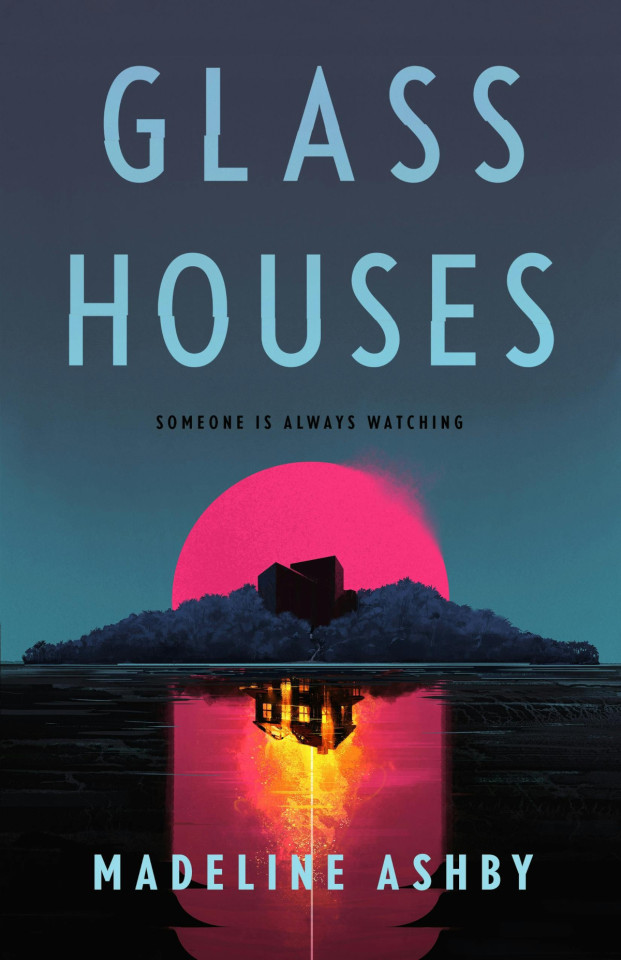
I'm coming to BURNING MAN! On TUESDAY (Aug 27) at 1PM, I'm giving a talk called "DISENSHITTIFY OR DIE!" at PALENQUE NORTE (7&E). On WEDNESDAY (Aug 28) at NOON, I'm doing a "Talking Caterpillar" Q&A at LIMINAL LABS (830&C).

Glass Houses – published today by Tor Books – is Madeline Ashby's terrifying technothriller: it's an internet-of-things haunted house story that perfectly captures (and skewers) toxic tech culture while also running a savage whodunnit plot that'll keep you guessing to the end:
https://us.macmillan.com/books/9780765382924/glasshouses
Kristen is the "Chief Emotional Manager" for Wuv, a hot startup that has defined the new field of "affective computing," which is when a computer tells you what everyone else around you is really feeling, based on the unsuppressible tells emitted by their bodies, voices and gadgets.
"Chief Emotional Manager" is just a cutesy tech euphemism for "chief of staff." The only person whose emotions Kristen really manages is Sumter William, the boyish billionaire CEO and founder of Wuv. Sumter hired Kirsten because they share a key developmental trait: both were orphaned at an early age and had to raise themselves in a media spotlight.
Both Sumter and Kristen had been in the spotlight even before their parents' death, though. Sumter was the focus of the intense attention that the children of celebrity billionaires always come in for. Kristen, though, was thrust into the spotlight by her parents: her prepper cryptocurrency hustling father, and her tradwife mother, whose livestreams of Kristen's childhoods involved letting the audience vote everything from whether she'd get dessert after dinner to whether her mother should give her bangs.
Kristen's parents died the most Extremely Online death imaginable: a cryptocurrency price-spike sent her father's mining rigs into overdrive, and when they burst into flame, the IoT house system failed to alert him until it was too late. The fire left Kristen both alone and horribly burned, with scars over much of her body.
Managing Sumter through Wuv's tumultuous launch is hard work for Kristen, but at last, it's paid off. The company has been acquired, making Kristen – and all her coworkers on the founding core team – into instant millionaires. They're flying to a lavish celebration in an autonomous plane that Sumter chartered when the action begins: the plane has a malfunction and crashes into a desert island, killing all but ten of the Wuvvies.
As the survivors explore the island, they discover only one sign of human habitation: a huge, brutalist, featureless black glass house, which initially rebuffs all their efforts to enter it. But once they gain entry, they discover that the house is even harder to leave.
This is the setup for a haunted house story where the house seems to be an unknown billionaire prepper's IoT house of horrors. As the survivors of the crash suffer horrible injuries and deaths on the island, the remaining Wuvvies bolt themselves inside, setting up a locked-room whodunnit that runs in parallel.
This is a fantastic dramatic engine for Ashby's specialty: extremely pointed techno-criticism. The ensuing chapters, which flip back and forth between the story of Wuv's rise and rise to a top tech company, and the company's surviving staff being terrorized on a paradisaical tropical aisle, flesh out Ashby's speculation and the critique it embodies.
For example, there's the political culture of Ashby's future America. Wuv are a Canadian company, headquartered in Toronto, and we gradually come to understand that Canada is the beneficiary of an exodus of tech companies from the US following a kind of soft Christian Dominionist takeover (Kristen and Sumter often have to wrangle rules about whether women are allowed to enter the USA in the company of men they aren't married to and who aren't their brothers or fathers).
The flashbacks to this America are beautifully and subtly drawn, especially the scenes in Vegas, which manages to still be Vegas, even amidst a kind national, legally mandated Handmaid's Tale LARP. Ashby uses her futuristic speculation to illuminate the present, that standing wave where the past is becoming the future. Like everything in the shadows of a haunted house tale, this stuff will make the hair on the back of your neck stand on end.
I'm a big Madeline Ashby fan. I have the honor of having published her first story, when I was co-editing one of the Tesseracts anthologies of Canadian SF. I've read and really enjoyed every one of her books, but this one feels like a step-change in Ashby's career, a leveling up to something even more haunting and brilliant than her impressive back-catalog.
Madeline and I will be live at Chevalier's Books in LA on Aug 16 as part of her Glass Houses tour:
https://www.eventbrite.com/e/book-talk-madeline-ashbys-glass-houses-tickets-965286486867

Community voting for SXSW is live! If you wanna hear RIDA QADRI and me talk about how GIG WORKERS can DISENSHITTIFY their jobs with INTEROPERABILITY, VOTE FOR THIS ONE!

If you'd like an essay-formatted version of this post to read or share, here's a link to it on pluralistic.net, my surveillance-free, ad-free, tracker-free blog:
https://pluralistic.net/2024/08/13/influencers/#affective-computing
#pluralistic#books#reviews#thrillers#science fiction#gift guide#madeline ashby#locked room mysteries#affective computing#ai#silicon valley#influencers#augmented reality
89 notes
·
View notes
Text


#study motivation#studyinspo#studyspiration#studyspo#studystudystudy#studyvisa#student life#study aesthetic#studyabroad#italy#study studying studygram studyblr studyabroad studyhard studyspo studymotivation studytime studyinspiration studyinspo studyaccount studyblo#studying#self help#books and reading#study art#academia#autumn#nail art#ai#black and white#animals#biology#blue#book review#baking#blogging#banana#beautiful#basketball#books
80 notes
·
View notes
Text
Buggy's Book Reviews: The Old Mountain Spellbook

Well well well, look who has returned after a long hiatus while life kicked my ass from here to Sunday.
Let's get started with a bang shall we?
TW: Slavery mentions, appropriation, generalized frustration at the writing space currently with the rise of ghost writers and AI.
This is: The Old Mountain Spellbook by Alda Dagny
Rating: 1/10
Buckle up. This is gonna be a bumpy ride. Prepare to be shocked, horrified, and gobsmacked.
For context the cover art of this book caught my eye and then I read the small blurb of a subtitle for it and cringed so incredibly hard that the moment it showed up in my Spotify audio book list, I had to give it a listen for a measly 3 and a half hours of my life while at work.
I regret this decision so very hard.
For further context:
This “author” Alda Dagny has also written books on…”The Secrets of the Nile” a three part series called “The Old Norse Spellbook:”, and “Secrets of Mesoamerica”.
My head hurts from thinking about the gall to “write” on such a wide variety of topics in a seniority form. But before I get ahead of myself let me go back into my proper format for these reviews.
Pros: SOME of the information is right. The mentions of planting by the signs and how the signs works was very accurate. The generalized description of grannies, while very surface level and focused far too heavily on the midwife aspect, which don’t get me wrong is super mega ulta important! Was right if not very generalized. That’s about all I’ve got.
It does mention that Hoodoo is a closed practice that stems from African Dispora/the Trans-Atlantic slave trade which good for this “author”. You will understand why that term is in parenthesis later!
This book also included a Bell Witch mention twice which made my Tennessee heart hopeful for like two seconds.
Cons: Gods help me. For starters, I know this was likely not a choice this “author” made, but why in the seven hells did the publisher pick an AUSTRALIAN PERSON to do the narration for this book? The mispronunciation of Appalachia and Asfidy are now burned into my brain for life. I do not appreciate it. The MINIMUM a narrator should do is glance through for proper pronunciations.
My gripes with the audiobook out of the way let’s get into the meat of this review: The book’s contents and why I believe this was ghost written/stolen from other places and put forward by an ai generated “author”.
The second entire chapter of this book, a whopping 40 minutes of the audiobook, is all about Hoodoo. The real thing that got me was it SAYS that Hoodoo is a CLOSED PRACTICE stemming from Africa Diaspora. And what does this book do anyway? Break Hoodoo down into stupid candle magic and mojo bags and tell you how to do “it”. I was surprised it got the origin of Hoodoo right! It was RIGHT! And then it shits on itself.
Examples: Hoodoo shares similarities with wicca. Tarot is incredibly important to the practice. And it is a religion and not a practice. The practice is “rootwork”. Did I mention that Hoodoo focuses on “doing no harm”? Oh and the third eye is important too, especially to Hoodoo despite it being a Hindu concept. I cannot make this up.
The wording of this book is also incredibly strange. I don’t have a ebook version to double check but I am positive the words Furthermore and However are included at least 50 times. EACH. The book also repeats itself numerous times. A good example is with the Furnace Ghost story it tells in the 4th chapter I believe? Where it repeats the same end of sentence with just slightly different beginnings within the same paragraph. There’s also other phrases used at the end of chapters to usher in the next that just read…weirdly? Examples:
“Let me set the stage” “You are not going to want to miss this.” What are you writing a script or a book?
Now for the proper “Appalachian Magic” side of the book. It consistently uses the term Granny Witch, and states numerous times that witchcraft was just fine! Appalachia did not care and the “fear” of witches never penetrated the mountains. But yet a “granny witch” would use faith not as a proper form of healing, oh no! It was “to keep doubters at bay”. So faith healing was a cover up and not the actual practice itself.
This book also has two whole chapters on legends and myths, which is fine, if it didn’t focus on the ones everyone knows like Bigfoot and Mothman only. Like it doesn’t cover any of the smaller localized things or spirits at all. Just the things you could easily find if you googled “appalachia spooky”.
Hmmmmmm. Strange isn’t it?
This book also stated that tarot and black tourmaline was ULTRA important to Appalachian magic. Like where does that come from? There’s another chapter dedicated to the phases of the moon and “spells” which they mean in a modern new-age witchcraft way and definitely not Appalachian, although I will give it props for saying the moon phases and astrology are different here. Because they are.
Tiktok was mentioned twice; it appropriates dreamcatchers and other Hoodoo items in the “non-Hoodoo” sections of the book. Hell, it even said, accurately mind you, that Mothman has even “spawned fanfiction”. It even got the information on where Roanoke was…wrong. Roanoke is in Virginia. This book claims it is in North Carolina.
The most damning thing however, and I use that however in a very sarcastic tone, is the “author” herself. I painstakingly typed in some text from the book and was surprised to see it come back as “human written”. I don’t think that’s quite true, if it is then they text portions must be stolen from other sources and shoved into a book form. Because this author? A bot.
Her profile image used on Amazon, which is the ONLY SOURCE of information on her, no socials, no google, nothing. Is AI generated. Proof is here:

And a blurb from the book I wanted to include as well. The first of many furthermores used.

The author's Biography, which again is the ONLY SOURCE OF INFORMATION on this supposed person, says as follows:
"Alda Dagny has always been drawn to history. Growing up in Scandinavia, history has always been all around her, gods and goddesses, pagan rituals and spells. Ancient ruins that dot her homeland captivated her from an early age, giving her a lifelong love of all things history. "
That's all I can find. That's it. Just AI and or ghost writing/theft has officially found itself in the AFM space. I hate this society.
#witchblr#buggy's book reviews#appalachian folk magic#AI has no place in the writing space.#Buggy is furious and might actually crack out that book I want to write now.#The more bullshit AFM books I read the more I want to write my own and set things straight.
34 notes
·
View notes
Text
It turns out you don't have to worry about bots scraping your fiction to feed AI when your brother FEEDS IT TO THE AI HIMSELF!!!!
#letting my family read my fiction was apparently a mistake#my brother centers a large portion of his personality around thinking that chatgpt is hilarious#and saying things like 'you should write all your stories with ai because it's better and all books suck' any time writing is mentioned#but i never thought!#that his immediate response#to me trying to let the family engage with this part of my life by sending the link to my published story in the family group chat#would be to copy-paste it to chatgpt and tell it to generate a critical review#mind you: he has not read a word of the story himself#the less than 1000 word story#he has tried to apologize by saying he will actually read it as if this is something i should be grateful for#after he's already done this#another brother has tried to console me by pointing out it probably would have been scraped anyway#BUT I WANT THEM TO HAVE TO WORK FOR IT!
28 notes
·
View notes
Text
Ancillary Mercy - Ann Leckie (Imperial Radch, #3)
5/5 - Just the right mix of battle and political intrigue; i deeply love these characters and this premise
This novel took on a very appropriate goal for the end of the trilogy. Too often, I read a novel with incredibly high stakes that is unable to wrap itself up nicely (or at all) because there is simply too much to deal with. Ancillary Mercy is an exception to this pattern. Having Breq aim only for the safety of one or two systems in the face of a tyrant who's been around for two thousand years makes sense. It's realistic. It feels achievable.
The characters themselves are fascinating - I can't say that I've read something in recent memory which treats AIs as something "living" and "breathing" that changes over time. Indeed, the last book I read outside of this trilogy that discussed AI made the AI seem static and unyielding across time. Anyway.
I think the conclusion, while quick in some ways, makes the book feel all the more like a part of a real universe. Nothing is wrapped up quickly. Our main characters are still going to have to sit in meetings for months to figure this out and I loved it! We need more open-ended stories!
On a final note, the Presger and Translator Zeiat are two of my favorite pieces of the book. They're just so, well, alien! A treat to read to be sure.
#I also just love that all the AIs call each other cousins bc thats real and sweet#also support your local library b/c this book is two weeks overdue and they haven't fined me#ancillary mercy#ann leckie#imperial radch#science fiction#speculative fiction#book reviews#bookblr#books#book review#books and reading#bookworm
8 notes
·
View notes
Text
Manga rec time:
She Loves to Cook and She Loves to Eat, by Yuzaki Sakaomi

Alternate title: Useless Lesbian Cooks Too Much.
Original title: Tsukuritai Onna to Tabetai Onna / 作りたい女と食べたい女
Genres: Slice of Life, Romance, Girls Love
Themes: Food, Daily Life
Japanese volumes: 2 (Ongoing)
Cooking is how Nomoto de-stresses, but one day, she finds herself making way more than she can eat by herself. And so, she invites her neighbor Kasuga, who also lives alone. What will come out of this impromptu dinner invitation...?
This is a very sweet and funny story where we see Nomoto and Kasuga getting closer with each meal, leading to an eventual romance (there's only 2 books out so it's not quite there yet, but it's getting to it).
I love how Yuzaki-sensei explores womanhood in this too, with Nomoto's male coworker telling her she'd make a good girlfriend, a chapter where Nomoto is on her period, general expectations towards women, or men's reaction to Kasuga's eating habits.
Speaking of Kasuga, I'm so glad to see a main character who doesn't have a skinny waist and noodle limbs. She eats a lot and it shows but it's never depicted as a negative thing and Nomoto never even thinks about her weight. She only thinks about Kasuga's physique once when she wonders where she does her shopping since she's so tall. That's it.
Also! There's a live action adaptation coming out on November 29th, I'm definitely watching it!

French version under the cut
Titre original : Tsukuritai Onna to Tabetai Onna / 作りたい女と食べたい女
Genres : Slice of Life, Romance, Girls Love
Thèmes : Gastronomie, Quotidien
Volumes VO : 2 (En Cours)
Cuisiner permet à Nomoto de décompresser mais un jour elle se retrouve à préparer bien plus que ce qu'elle ne peut manger seule. Elle invite donc sa voisine Kasuga, qui vit seule elle aussi. Cette invitation inattendue pourrait bien avoir des conséquences surprenantes...
C'est une histoire tendre et drôle où on voit Nomoto et Kasuga se rapprocher avec chaque repas partagé, ce qui mènera éventuellement à une relation amoureuse (y'a que 2 tomes sortis donc on y est pas encore, mais ça va arriver).
J'aime beaucoup le fait que Yuzaki-sensei explore un peu ce que c'est d'être une femme, avec un collègue de travail de Nomoto qui lui dit qu'elle ferait une bonne petite-amie, un chapitre où Nomoto a ses règles, les attentes de la société envers les femmes, ou les réactions des hommes face aux habitudes alimentaires de Kasuga.
En parlant de Kasuga, je suis contente de voir une personnage principale qui n'a pas une taille de guêpe et des gressins à la place des membres. Elle mange beaucoup et ça se voit, mais ce n'est jamais montré de manière négative et Nomoto ne pense même jamais à son poids. La seule fois où elle pense au physique de Kasuga, c'est pour se demander où elle fait son shopping vu qu'elle est grande. C'est tout.
Aussi ! Ils vont sortir une adaptation en drama le 29 novembre, je vais absolument le regarder !
#she loves to cook and she loves to eat#tsukuritai onna to tabetai onna#tsukutabe#yuzaki sakaomi#manga#manga racs#manga recommendation#manga review#girls love#shoujo ai#japanese gl#gl#lesbians#queer manga#lgbt manga#french#booklr#almost wrote booblr instead lmao fitting#books#book recs#book reviews
287 notes
·
View notes
Text

STOMACH-CHURNING 😂😂😂
#it finally occurred to me to go look at the ai review summary thing for my book on amazon#and now I’ll get to think of my dialogue as stomach-churning all day 🙌#(in fairness to this nonsensical AI summary I kind of agree)#dollsome's deep thoughts#charming amazing and sweet … that’s me! 😂
17 notes
·
View notes
Text
Primary thoughts on The Left Hand of Darkness
I've just finished Ursula K. Le Guin's The Left Hand of Darkness, which if you haven't read, I believe a spoiler alert is in order for this post.
After reading The Ones Who Walk Away from Omelas and subsequently devouring the Earthsea Cycle, I have become an avid fan of Le Guin's work, both in fantasy and science fiction. Though I can't help but feel as if I am somehow late to the party in that regard.
This is not to be a full review of The Left Hand of Darkness, as I do believe in letting a book percolate on the brain before passing judgment; however, I do want to share some immediate thoughts.
By God, she can paint a whole society in few strokes. Both Karhide and Orgoreyn are as vivid to me as Venice or Austria (places I have yet to see, but have been related to me by friends and/or acquaintances). Grand cities, quiet villages, and the icy cold of the Gobrin Glacier are impressed upon the reader with the lightest of touches, never breaking the illusion and serving the characters as vivid backgrounds.
I found chapters 15-19 of particular interest. The rythym of the story seemed to change here, and Le Guin takes her time letting Estraven and Genly Ai crawl towards Karhide across the bitter wilderness. The time stretches for the reader as well as the characters, some scenes being repeated from both perspectives.
I believe in these chapters we are more dialed in to the characters' thoughts and feelings, peering closer and closer into the nature of their relationship during their journey. They formed a habit, a routine, monotonous and yet comforting in the simplicity of their mission.
Genly Ai describes how he feels about that time in this passage from the beginning of chapter 18:
"We are inside, the two of us, in shelter, at rest, at the center of all things. Outside, as always, lies the great darkness, the cold, death's solitude.
In such fortunate moments as I fall asleep I know beyond doubt what the real center of my own life is, that time which is past and lost and yet is permanent, the enduring moment, the heart of warmth.
I am not trying to say that I was happy, during those weeks of hauling a sledge across an ice-sheet in the dead of winter. I was hungry, overstrained, an often anxious, and it all got worse the longer it went on. I certainly wasn't happy. Happiness has to do with reason, and only reason earns it. What I was given was the thing you can't earn, and can't keep and often don't even recognize at the time; I mean joy."
Joy. Despite the pain, cold, and weariness Genly Ai describes a feeling of joy. What is the source of this joy? He doesn't exactly say. He deems this period in his life as the center, a theme that comes up in earlier chapters dealing with Gethenian mythos. The center of ones life, the center of time, etc.
Just before being rescued by Estraven he is trapped in a work/death camp in Orgoreyn, which he will surely remember as the worst time of his life, the most miserable. That is not deemed the center, or the most important. It's the warmth of the tent, the seclusion on the ice, and the forging of the companion-bond between he and his companion that Genly Ai cites as the center. A bond that is quickly (spoiler) broken when Estraven dies.
They are not romantically involved, nor sexually. They just work together, they survive together.
I think that extreme of a situation is not one that is easily come by for any reader. However, at least for myself there are a few memories that I could deem the "center" of my life as it stands today. These memories somewhat echo the experiences of Genly Ai and Estraven. One in particular was an afternoon spent alone with a friend before we parted after graduating from university. We cried, and lay in the sun in my empty dorm room until the sun drifted towards the horizon. I felt an intense bond to this person, and even today can picture that tiny room, the sunlight through the window, and the color of their eyes. I felt (at the time) that I was in the center of time. The center of my life.
In some later passages Genly Ai recalls specific details about Estraven's hair, or the smell of the tent that feel oddly familiar to how I experience memories that I've carried with me. Maybe I don't recall the conversations, but I'll remember certain details forever.
I'm not exactly sure how the comments/messages works on Tumblr.com yet, but please let me know your thoughts if you have any differing opinions or notes. I would love to discuss this book! Again, it's quite fresh to me so I am still settling on my opinions etc.
#ursula k. le guin#le guin#the left hand of darkness#writing#literature#review#books#estraven#genly ai#karhide#orgoreyn#Winter#author#discussion#feel free to discuss#what are your thoughts?#book reviews#science fiction#fantasy#science fiction books
40 notes
·
View notes
Text
klara and the sun, by kazuo ishiguro: four out of five positronic brains
this is a short novel, easy to read, suited for both young adult and adult readers. you will find themes of friendship, family relationships, identity, and what i would call class struggle, but in a sort of individualized way.
the science fictional touches are light -- ishiguro is not always a scifi author, but he handles them fairly well. we see little of the world, so it is still believable that we are visiting the world of the future, even though little seems to have changed. it's nice to see that genre fiction and literary fiction can still combine. i wonder what it was that inspired ishiguro to explore scifi.
the main character of the novel is klara, an "artificial friend" who serves as the pov character. we see the world only through her limited lens, starting from the store where she watches the world through the shop window and slowly labors to understand that world, sometimes reaching … idiosyncratic conclusions. she is an a.i. with a robotic body, but she has emotions, introspection, preferences, … despite this, she is someone's property. this is the sort of novel that addresses things like this not theatrically, as star trek does, where they had a special episode ("the measure of a man") where they literally staged a trial to ascertain whether the android lieutenant data counted as a person, but through events; there's never a scene where someone says "wow, it's so unfair that you can be bought and sold as a piece of hardware," but the story follows the life of klara to show you what this situation means. it's not a didactic story, it's a demonstrative story. i recommend it for anyone who wants a clear, accessible novel that explores intimate questions about relationships and technology.
#ai#artificial intelligence#klara and the sun#kazuo ishiguro#book review#book reviews#review#reviews#science fiction#scifi
23 notes
·
View notes
Text
2023-12-22 Across the Green Grass Fields
For our December book, we read YA portal fantasy novella *Across the Green Grass Fields *by perisex author Seanan McGuire. Elizabeth nominated the book after seeing this review of the book by intersex author JS Fields, who was also a sensitivity reader for the book.
Overall impressions
Elizabeth was stoked for a book with quality intersex-at-puberty representation that was also refreshingly pleasant to read!
vic read the first half, and liked how the book asks you to think about how to parent intersex kids, as well questions about agency and children. Also the book is really sweet; it is warm and caring.
Bnuuy was upset that the book did not take an unambiguous anti-bullying stance, and failed to hold its protagonist Regan accountable for her role in ostracizing her friend Heather when Heather was insufficiently girly.
Vo felt it was very heavy hitting at the beginning, but the book only sort of returned to it. There’s all these scenes where Regan doesn't feel like one of the other girls, and then in the Hooflands she's able to become herself.
Michelle’s view as an author was that from a craft perspective, the ending felt rushed [SPOILERS] xe would have liked to see her meet her centaur family again, see the anti-monarchist revolution that Regan incited. [/SPOILERS]
Intersex analysis
A totally incommensurate amount of intersex representation is intersex-at-birth stories, even though tons of intersex variations become evident at puberty. While Regan’s AIS was known from birth, she doesn’t start to show physical differences until puberty, and her parents don’t tell her until then.
A big reason many of us liked this book was how it delivered on conveying the social & psychological aspects of being intersex at puberty. The author is perisex and perisex authors tend to over-focus on the anatomical aspects and fail at depicting the social/psychological parts.
The horror that Regan experiences at realizing she is intersex and her terror of transgressing gender roles was something many of us could relate to. Many of us spoke up about our personal experiences going through atypical puberties and getting picked on for it. In the sharing of personal stories, many of us pointed out how our parents added to the shaming. Regan’s parents, while very imperfect, at least did not ruthlessly double down on gender presentation like so many of our parents did!
Many of us were excited to see intersex representation that is *literally anything other than ambiguous genitals*! This book was not fetishy in a way that is very rare to see from a perisex author, and felt like a good example of how a perisex author can do intersex representation well.
This book does an excellent job prompting the reader to think about how to best parent an intersex child. The parents of the protagonist are depicted as kind of bumbling but good-intentioned and fail in some key ways that lead to Regan running away. It invites the reader to think about what they should do differently.
Parenting Intersex Kids
We spent a good hour talking about the decisions made by Regan’s parents and how they set her up for failure. Her parents made the decisions not to tell Regan she had AIS until she noticed she was different, which gave us the impression they saw the AIS as a negative they needed to shield her from.
Bnuuy pointed out the parents, before telling Regan she had AIS, should have first established that “hey you don’t have to experience things like everyone else”. Regan had anxiety about not starting puberty, and the parents focused instead on revealing she was intersex. vic pointed out they gave a different answer than what she had actually asked.
vic was concerned that the parents didn’t sit Regan down and explain that the world HATES intersex people and those who don’t conform and so you need to be careful about who you tell. Vo agreed that if you don’t set people up for the realities of the situation they will be facing, you’re setting them up to fail.
Bnuuy pointed out how the parents called Regan a “perfect girl”, when what they needed to do was deconstruct that. Vo asked what they would do if down the line Regan stopped being a “perfect girl”. We discussed how the language of “perfect girl” conveys that we measure people by how good they are as a girl/woman, and that teaching your kid they need to be perfect to be loved is messed up.
Michelle pointed out there was a nice moment of implied trans solidarity when Regan’s parents told her that “if you say you’re a girl then you’re a girl”.
Elizabeth pointed out the parents didn’t encourage Regan to support non-conformity, to have her play in non-stereotypic ways. They also seemed way too happy to accept Regan saying she was okay with the situation rather than keeping Regan home from school the next day to process it.
Bnuuy pointed out they could have made Regan apologize to Heather, and was disappointed the mother did not make that happen. Even if Regan didn’t know she was intersex at the time, the parents did know, and should have been able to connect that letting bullying happen would eventually lead to Regan being bullied.
We did note that Regan’s parents protected Regan from surgery as an infant and were supportive of her bodily autonomy. This is important! But it was great to see parents held to a higher bar than whether or not you subject your child to unnecessary and irreversible cosmetic surgery as a child.
Book summary (mild spoilers)
The book has two distinct parts: it starts in our world, centring on protagonist Regan as she enters adolescence. She has embraced social conformity, even though it has led to shun her friend Heather after a mutual friend (Laurel) decides that Heather is gross for wanting to play with a snake.
When Regan’s parents tell her she AIS at age 10, it triggers a series of events that involve Laurel shunning Regan for having AIS and Regan running away through a portal.
Once through the portal, Regan arrives in the Hooflands, a world of centaurs. She is adopted by a family group of unicorn ranchers, who nurture her and give her actual agency. She is expected to be the harbinger of some sort of social upset, which she refuses to participate in. Instead, she grows up with her family for five years before she finally feels ready to play her role as a hero.
What we liked about the book
The intersex representation (see above!), it was very normalizing without any awkward fourth-wall breaks to infodump on the reader
The story is sweet and warm, while also remembering that “kids are not little sugary robots that are happy all the time” (per vic)
In the Hooflands, Regan is given agency and grows as a person; the implicit message is that autonomy and agency are necessary for children to grow.
A few of us were just happy to have horses 🐴
Anti-monarchist plot yesssss
What we didn’t like
The ending. Regan never gets to say goodbye to her adopted family nor see the revolution she instigates. The book ends with her returning to our world, getting ready to enter her bioparents’ house, so we never see her reunite with her bioparents.
This also means that the first part of the book (events that lead to her running away) and the second part of the book (the Hooflands) never really come together. We all agreed that the book didn’t do enough to resolve or return to the first part of the book, leaving the story feeling incomplete.
There were POV/narrator changes that multiple people found confusing; it was unclear when it was Regan’s thoughts vs an omniscient narrator.
Regan is a coward and a bully. She grows as a character but never really makes things right with her friend Heather. That Regan doesn’t reflect on how she was a bully nor properly redeemed was particularly upsetting to Bnuuy, who found it difficult to sympathize with Regan after she participated in the ostracism of Heather.
Mixed feelings
Some of us preferred the first part of the book, others preferred the Hooflands part.
A few people were surprised Regan was the main character, given how badly she’d behaved at the start, and assumed Heather would be the main character
Not everybody could empathize with Regan, that social ostracisation is something young girls understand they need to avoid at all costs. Some of us felt that although Regan’s behaviour was bad it was understandable. That children don’t have fully developed moral compasses and shouldn’t be judged by adult standards. Michelle recommended “Cat’s eye” by Margaret Atwood for capturing issues of girlhood in greater detail than this book did.
Other thoughts on the book
Most of us related to Heather, who did nothing wrong and was arbitrarily ostracized. Many of us shared stories of being bullied as children & adolescents and how for many of us it happened without any clear inciting event or reason.
A few of us saw Regan’s friendship with Chicory as sapphic or queerplatonic
Michelle pointed out there’s a possible reading of the book where the Hooflands weren’t real - that Regan had dissociated for years and only at the end of the book snapped out of. This is not what the book seemed to be going for, but it was an interesting thing to consider.
Overall assessment: the intersex representation was lauded by all of the intersex people in the call as an example of how a perisex author can do justice to intersex representation. However, the bullying subplot was a notable weakness, given its lack of resolution in the ending. Bullying is a serious issue that has lifelong effects, and intersex people are vulnerable to bullying, so we would have liked a clear moral message on this front.
#intersex book club#intersex books#intersex fiction#intersex literature#intersex representation#intersex#actually intersex#queer fantasy#queer fiction#queer YA#AIS#book summaries#book summary#book reviews#book review
12 notes
·
View notes
Text
Kashmir Hill’s “Your Face Belongs to Us”
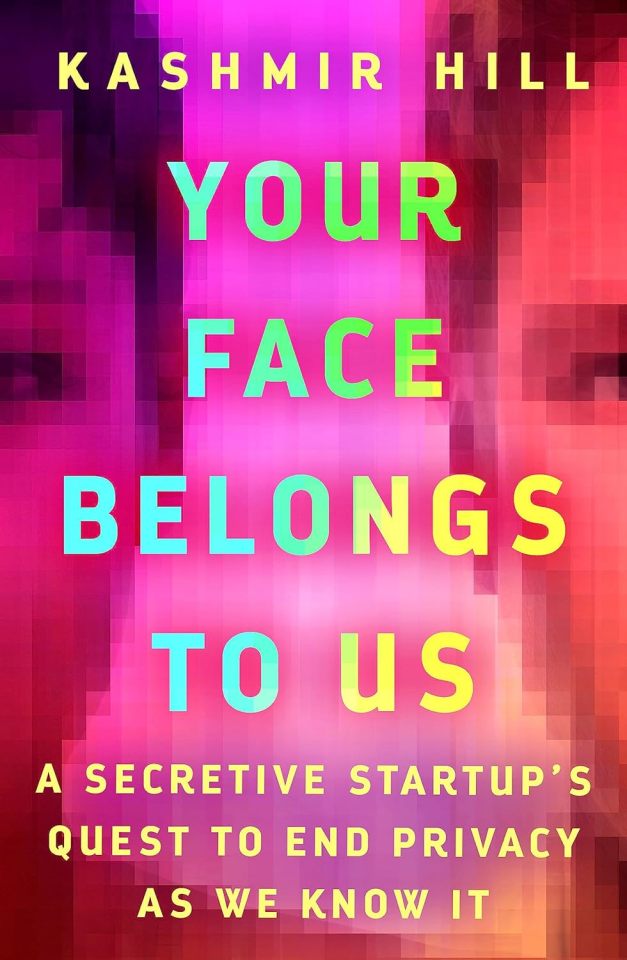
This Friday (September 22), I'm (virtually) presenting at the DIG Festival in Modena, Italy. That night, I'll be in person at LA's Book Soup for the launch of Justin C Key's "The World Wasn’t Ready for You." On September 27, I'll be at Chevalier's Books in Los Angeles with Brian Merchant for a joint launch for my new book The Internet Con and his new book, Blood in the Machine.

Your Face Belongs To Us is Kashmir Hill's new tell-all history of Clearview AI, the creepy facial recognition company whose origins are mired in far-right politics, off-the-books police misconduct, sales to authoritarian states and sleazy one-percenter one-upmanship:
https://www.penguinrandomhouse.com/books/691288/your-face-belongs-to-us-by-kashmir-hill/
Hill is a fitting chronicler here. Clearview first rose to prominence – or, rather, notoriety – with the publication of her 2020 expose on the company, which had scraped more than a billion facial images from the web, and then started secretly marketing a search engine for faces to cops, spooks, private security firms, and, eventually, repressive governments:
https://www.nytimes.com/2020/01/18/technology/clearview-privacy-facial-recognition.html
Hill's original blockbuster expose was followed by an in-depth magazine feature and then a string more articles, which revealed the company's origins in white nationalist movements, and the mercurial jourey of its founder, Hoan Ton-That:
https://www.nytimes.com/interactive/2021/03/18/magazine/facial-recognition-clearview-ai.html
The story of Clearview's technology is an interesting one, a story about the machine learning gold-rush where modestly talented technologists who could lay hands on sufficient data could throw it together with off-the-shelf algorithms and do things that had previously been considered impossible. While Clearview has plenty of competitors today, as recently as a couple of years ago, it played like a magic trick.
That's where the more interesting story of Clearview's founding comes in. Hill is a meticulous researcher and had the benefit of a disaffected – and excommunicated – Clearview co-founder, who provided her with masses of internal communications. She also benefited from the court documents from the flurry of lawsuits that Clearview prompted.
What emerges from these primary sources – including multiple interviews with Ton-That – is a story about a move-fast-and-break-things company at the tail end of the forgiveness-not-permission era of technological development. Clearview's founders are violating laws and norms, they're short on cash, and they're racing across the river on the backs of alligators, hoping to reach the riches on the opposite bank without losing a leg.
A decade ago, they might have played as heroes. Today, they're just grifters – bullshitters faking it until they make it, lying to Hill (and getting caught out), and the rest of us. The founders themselves are erratic weirdos, and not the fun kind of weirdos, either. Ton-That – who emigrated to Silicon Valley from Australia as a teenager, seeking a techie's fortune – comes across as a bro-addled dimbulb who threw his lot in with white nationalists, MAGA Republicans, Rudy Guiliani bagmen, Peter Theil, and assorted other tech-adjascent goblins.
Meanwhile, biometrics generally – and facial recognition specifically – is a discipline with a long and sordid history, inextricably entwined with phrenology and eugenics, as Hill describes in a series of interstitial chapters that recount historical attempts to indentify the facial features that correspond with criminality and low intelligence.
These interstitials are woven into a-ha moments from Clearview's history, in which various investors, employees, hangers-on, competitors and customers speculate about how a facial-recognition system could eventually not just recognize criminals, but predict criminality. It's a potent reminder of the AI industry's many overlaps with "race-science" and other quack beliefs.
Hill also describes how Clearview and its competitors' recklessness and arrogance created the openings for shrewd civil libertarians to secure bipartisan support for biometric privacy laws, most notably Illinois' best-of-breed Biometric Information Privacy Act:
https://www.ilga.gov/legislation/ilcs/ilcs3.asp?ActID=3004&ChapterID=57
But by the end of the book, Hill makes the case that Ton-That and his competitors have gotten away with it. Facial recognition is now so easy to build that – she says – we're unlikely to abolish it, despite all the many horrifying ways that FR could fuck up our societies. It's a sobering conclusion, and while Hill holds out some hope for curbing the official use of FR, she seems resigned to a future in which – for example – creepy guys covertly snap photos of women on the street, use those pictures to figure out their names and addresses, and then stalk and harass them.
If she's right, this is Ton-That's true legacy, and the legacy of the funders who handed him millions to spend building this. Perhaps someone else would have stepped into that sweaty, reckless-grifter-shaped hole if Ton-That hadn't been there to fill it, but in our timeline, we can say that Ton-That was the bumbler who helped destroy something precious.



If you'd like an essay-formatted version of this post to read or share, here's a link to it on pluralistic.net, my surveillance-free, ad-free, tracker-free blog:
https://pluralistic.net/2023/09/20/steal-your-face/#hoan-ton-that

#pluralistic#books#reviews#gift guide#clearview ai#facial recognition#biometrics#eugenics#crime#privacy#cop shit#hoan ton-that
84 notes
·
View notes
Text


#studyabroad#study motivation#studyinspo#studyspiration#studyspo#studystudystudy#studyvisa#student life#study aesthetic#italy#coffee break#biology#blue#baking#blogging#bookworm#book review#beautiful#books#blog#basketball#notes app#warm and cozy#one year ago#books and reading#study art#autumn#ai#academia#black and white
11 notes
·
View notes
Text
youtube
Zero Day Director commentary - With actor Andre Keuck
#movies#film#cinema#Damn I wish Cal was here#Andre and Ben are really interesting to listen to#This movie is one of those movies where it needs like 3 commentaries#It needs one with just Ben Coccio by himself#then one with Cal and Andre by themselves#then another with all 3 of them#Not all movies do that but I love when studios/filmmakers have multiple commentaries to create a sense of thorough intimacy#due to the nature of how commentaries are set up they can be quite restrictive/pressing/limited with no pauses or rewinds.#so I find cast/crew don't have enough time or able to present how they would like to if they could edit/rewind or pause for fluent presenta#So I love when they have director commentaries and actor commentaries or composer commentaries#Platoon's dvd extras are so dope they got multiple commentaries and one with military adviser Dale Dye who was a RL vietnam vet#Or Hostel's commentaries where one is just Eli Roth and another is Tarantino and Eli Roth with Scott Spiegal#idk if Zero Day ever got a blu-ray release but I think it should but the DV technology of the camera is kinda at it's limit of resolution#but an AI upscaling with 20 years later retrospective with Ben Cal and Andre would be sooo dope along with updated commentaries#Every few years I always rewatch Zero Day so that time has come that last few days lol#Ever since Columbine as a lil kid I have always been into spree-murders and active shooter incidents#I remember reading a peer-reviewed paper called Pseudo-Commandos#And Eric and Dylan and Andre and Cal would be dubbed Pseudo-Commandos where they dress up in a semi-military fashion#and have a delusion of superiority mixed with perceived sense of persecution whether it's true or not#it went into the Postal shooter from the 80s as well and what he went through along#plus I read another book called Going Postal which also went into postal shootings along with school shootings#I want to make a film about spree murders or an active shooter/s but I remember just getting so tired of the subject matter#because every 3 weeks there was some new shooter in the headlines and I found myself not wanting to be exploitative#When I write/direct my film I'd like it to address and study the character of such an individual but not try to be too political#or exploitative and focus on the ambiguities that are left behind when someone does this#as a society I noticed we stopped asking the questions on why and stopped having constructive conversations#it feels like as a coping mechanism we've started treating them like tornados or natural disasters
4 notes
·
View notes
Photo
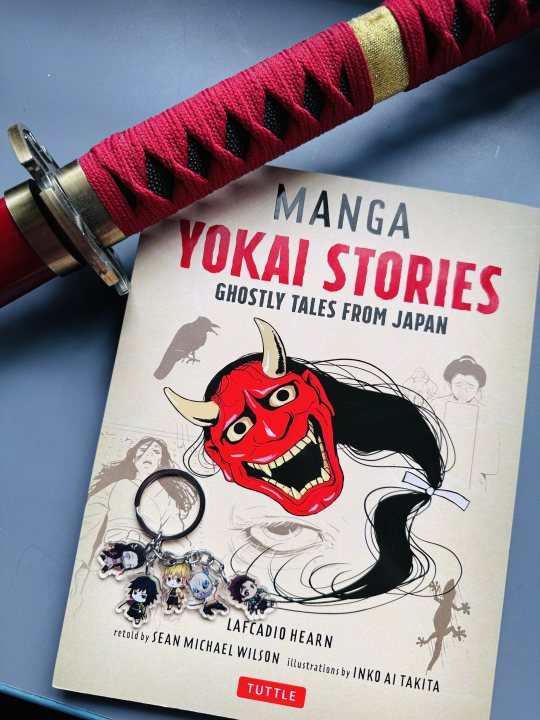
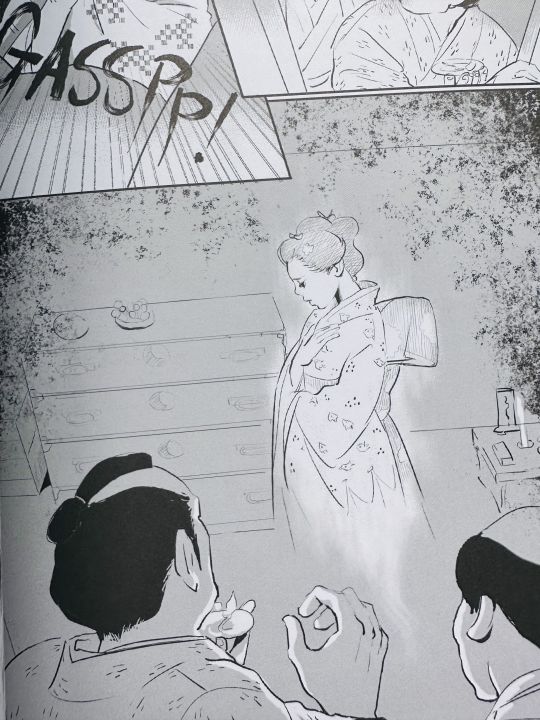
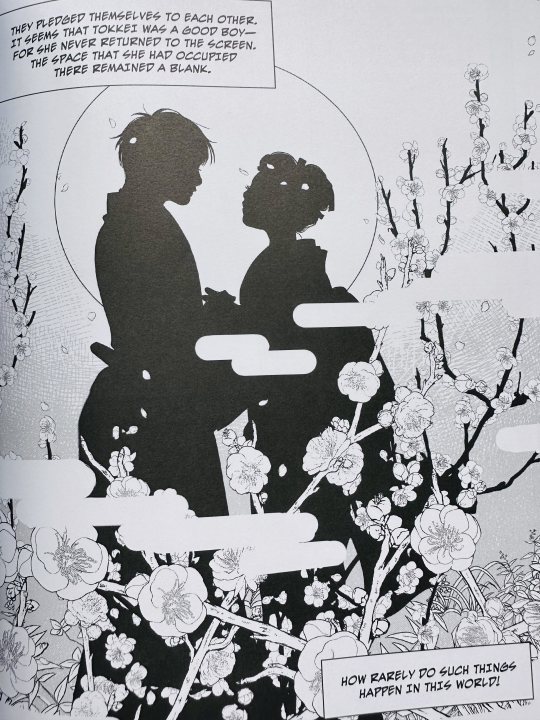
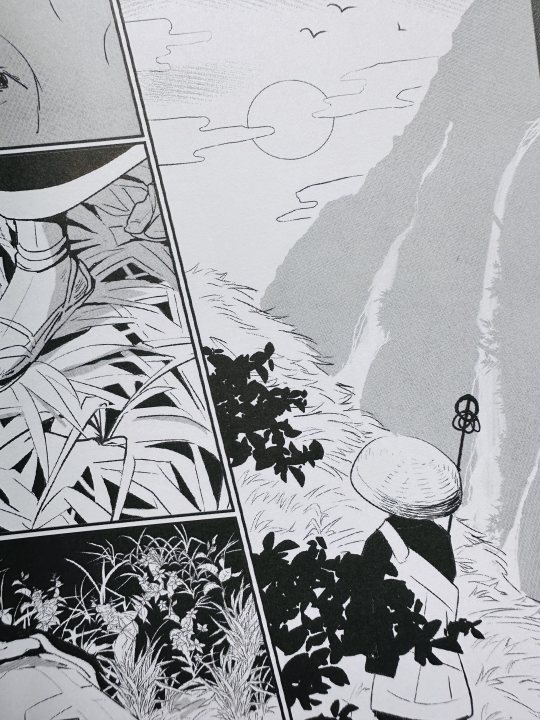
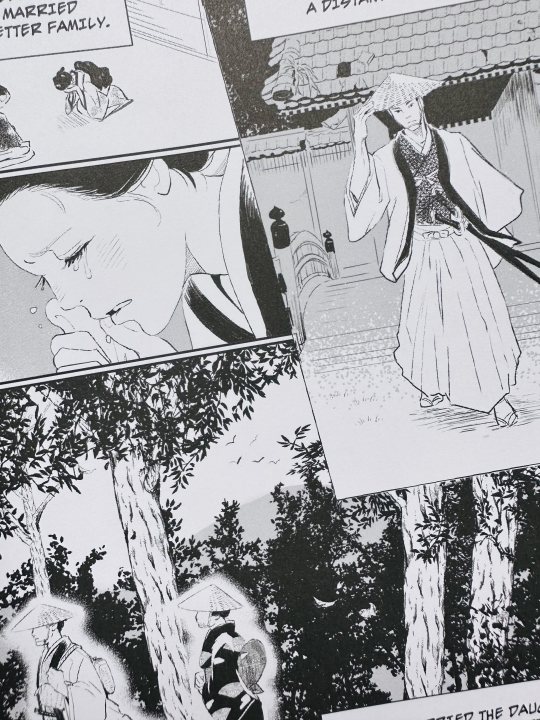
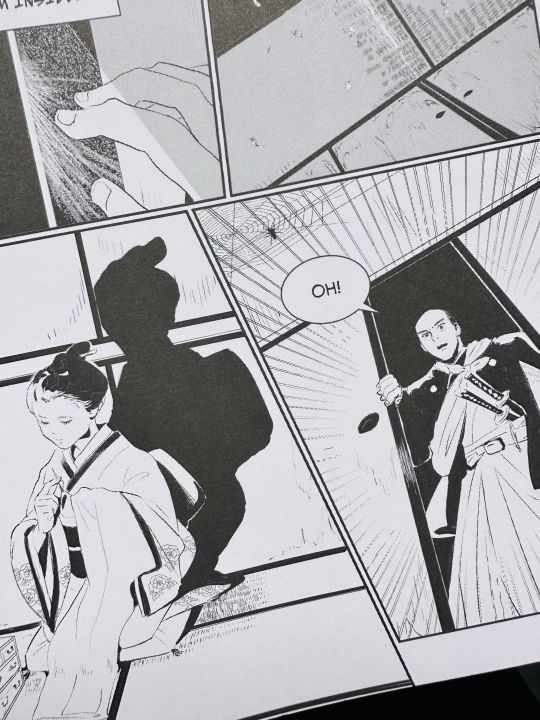
Manga Yokai Stories: Ghostly Tales from Japan
A collection of tales consolidated by a Greek-Irish writer named Lafcadio Hearn who lived in Japan in 1904 and was fascinated by the stories he read and hear that he put them together into a book called “Kwaidan”.
He finds the stories fascinating as it’s not the type of horror stories you would expect but rather presented in a different way focusing on the human nature of the ghosts like regrets, anger, loneliness and sorrow.
It is essentially a story of letting go of the past and moving on in life as the ghosts return from the dead because they want vengeance against those who wronged them in life, to be with their loved ones who they still miss.
Or even wanting a second chance in life after messing up in their unfulfilling life but can’t. So they are unable to die in peace and move on to the next world because their heart and soul are still clinging on to the world, to the past.
A page turner filled with interesting stories with plot twists making you wonder if they are able to search for inner peace or what they are looking for and wonder if the story goes the way you expect it to.
The illustrations by Inko Ai Takita is simply beautiful, with a blend of typical manga style and a touch of realism to it which helps in the dramatisation of the stories as you can feel the emotions showed by the characters.
A good book to read if you’re interested in Japanese culture and folktales. Or if you love art and appreciate the amazing artwork and is more of a visual reader like me who likes reading books with illustrations.
#manga yokai stories : ghostly tales from japan#manga yokai stories#ghostly tales from japan#yokai#japanese folktale#japanese folklore#japan#japanese culture#japanese illustration#japanese art#japanese book#book review#book recommendations#manga#lafcadio hearn#inko ai takita#sean michael wilson
33 notes
·
View notes